1771 words
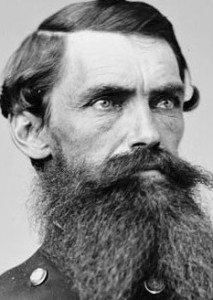
“Tall, athletic, rough, and full of fire and vitality, the half-horse, half-alligator type still predominates in the lower and middle classes of the South while a more elegant but equally vigorous physique characterizes the polished, proud, subtle, ambitious, warlike, domineering class who will lead them.”
David Hunter Strother wrote thus in Harper’s Monthly, warning the conflict with Southern armies would be long and hard. George Baylor from Jefferson County wrote that young boys grew up shooting pistols and riding horses from the earliest age, making them martial material. Strother even-handedly skewers all points of view with real knowledge of the matter, having grown up amongst his subjects. He asks: “What motivates the young man to go to war?”
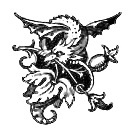
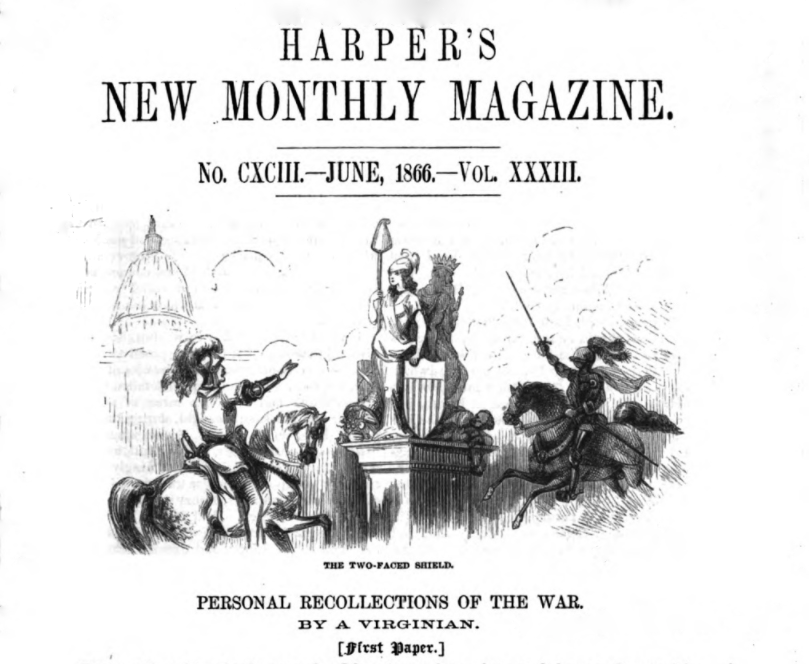
This is certainly an efficient and virulent agent in the revolution which is brewing here.
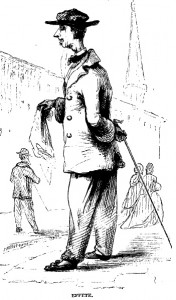
The New York papers speak of the Southern people as “effete;” and there seems to be an impression prevailing generally in the North that the physique of the Southern people is deteriorated by a life of luxurious and dissolute idleness. If the dapper ideologist who entertains such an idea should happen to come in contact with
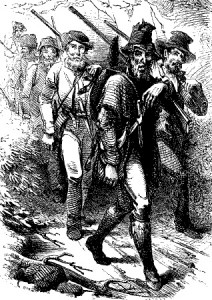
some hardy Southern mountaineer carrying a hundred and fifty pound buck on his shoulder – some stark and sinewy swamper with his swivel of a ducking-gun –
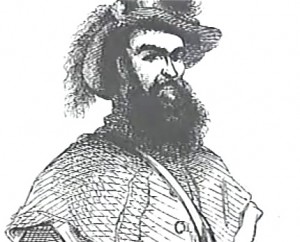
some hard-riding Tony Lumpkin of the rural gentry, the preux chevalier of tournaments, cock-fights, and quarter-races, he would presently find out who was “effete.”
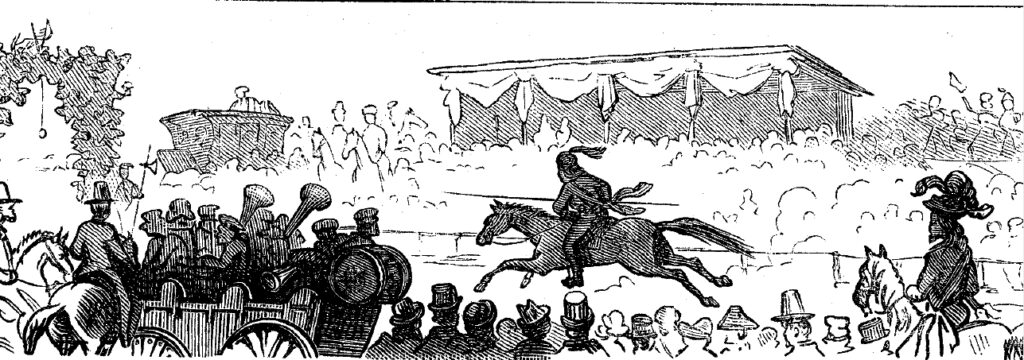
There is probably not a population to be found who, by their habits of life, occupations, and amusements, are better fitted for soldiers than that of the Southern States. Horses and fire-arms are their playthings from childhood. Impatient of the restraints of school-houses and work-shops they seek life and pleasure in the soil, and thus early learn the topography of nature, the ways of the fields and forests, swamps, and mountains. Their social and political life, but little restrained by law or usage, develops a vigorous individuality. For the most part, ignorant of the luxuries and refinements of cities, they prefer bacon and whisky to venison and Champagne. Tall, athletic, rough, and full of fire and vitality, the half horse, half alligator type still predominates in the lower and middle classes of the South while a more elegant but equally vigorous physique characterizes the polished, proud, subtle, ambitious, warlike, domineering class who will lead them.
The Southern editors, on the other hand, jealous of assumed Northern pre-eminence in silly and brazen imposture, make haste to assure their readers that the people of the late United States are now a frantic mob of Yankees and abolitionists, manufacturers of wooden nutmegs and patent apple-peelers, seedy pedagogues and brain-sick ideologists, and won’t fight. Now if these adverse utterances are any thing more than the ravings of partisan passion – if the people of the sections do entertain such opinions of each other, it is high time they had a war. It will then be shown satisfactorily to both parties whether or not the hardy pioneers who have subjugated a rugged continent to the sons of the Vikings, who have driven whales from the high seas, will fight, and whether or not the domineering lords of Southern soil and serfs are effete.
This account describes the social pressures to enlist in Charles Town, then Virginia. – ED
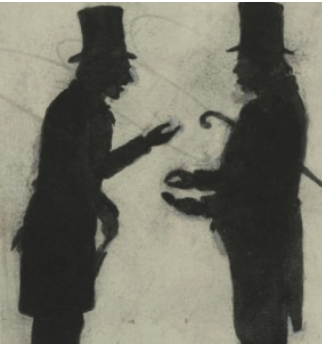
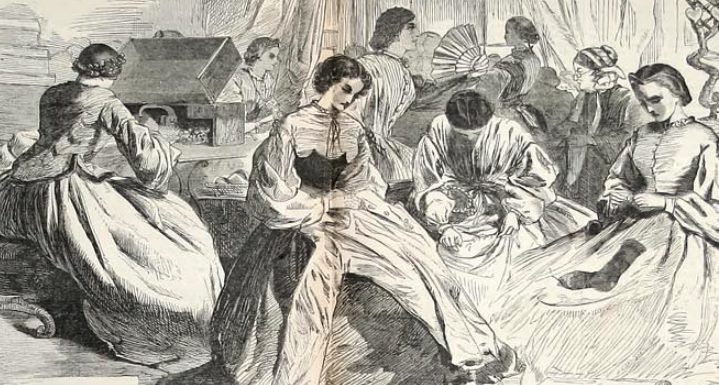
While there were still a few men found who stubbornly struggled against the sweeping current, the women of all ages and conditions threw themselves into it without hesitation or reserve. Their voluble tongues discussed the great question as rationally and philosophically as might be expected under the circumstances, while their nimble fingers aided more intelligently in solving the problem of clothing and equipping the hastily levied defenders of “God’s glory and Southern rights.”
Sewing societies were organized, and delicate hands which had never before engaged in ruder labor than the hemming of a ruffle now bled in the strife with gray jeans and tent cloth. Haversacks, knapsacks, caps, jackets, and tents were manufactured by hundreds and dozens.
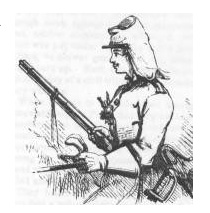
The gift most in vogue from a young lady to her favored knight was a headdress imitated from those worn by the British troops in India and called a Havelock. Laden with musket, sabre, pistol, and bowie-knife, no youth considered his armament complete unless he had one of these silly clouts stretched over his hat. Woe to the youth who did not need a Havelock; who, owing to natural indisposition or the prudent counsel of a father or a friend, hesitated to join the army of the South.
NOTE: Gen. Thomas Jackson discouraged the Havelock as an unnecessary article of clothing.-ED
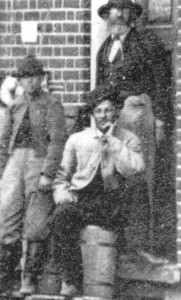
The curse of Clan Alpin on those who should prove recreant to the sign of the fiery cross was mere dramatic noise compared with the curse that blighted his soul. His schoolmates and companions who had already donned ‘the gray’ scarce concealed their scorn. His sisters, rallied, reproached, and pouted, blushing to acknowledge his ignominy. His Jeannette, lately so tender and loving, now refused his hand in the dance, and, passing him with nose in air, bestowed her smiles and her bouquet upon some gallant rival with belt and buttons. Day-after-day he saw the baskets loaded with choice viands, roasted fowls, pickles, cakes, and potted sweetmeats, but not for him. Wherever he went there was a braiding of caps and coats, a gathering of flowers and weaving of wreaths, but none for him – no scented and embroidered handkerchiefs waved from carriage-windows as he rode by.

The genial flood of social sympathy upon which he had hitherto floated so blandly had left him stranded on the icy shore. Then come the cheering regiments with their drums and banners, the snorting squadrons of glossy prancing steeds the jingling of knightly spurs, the stirring blast of the trumpets. There they went – companionship, love, life, glory, all sweeping by to Harper’s Ferry!
Alas! poor boy, what sense of duty or prudent counsels could hold him in the whirl of this moral maelstrom? What did he care for the vague terror of an indictment for treason, or the misty doctrine of Federal supremacy? What did he know of nationality beyond the circle of friends and kindred? What was his sneaking, apologetic, unsympathetic life worth after all? The very bondsman who held his horse as he mounted for his morning ride seemed to reproach him, as, touching his hat, he remarks, suggestively, “Young master, this horse of yours is mighty proud and mettlesome – he would look fine in the cavalry.” Very well; in two days – more or less – you might see young master in the cavalry, prancing gallantly with the rest of them, a Havelock flapping about his ears, spurs jingling on his heels, the light of manhood rekindled in his eye, and a fresh posy in his button-hole, atoning for his former hesitancy by distinguished seal in the great cause.
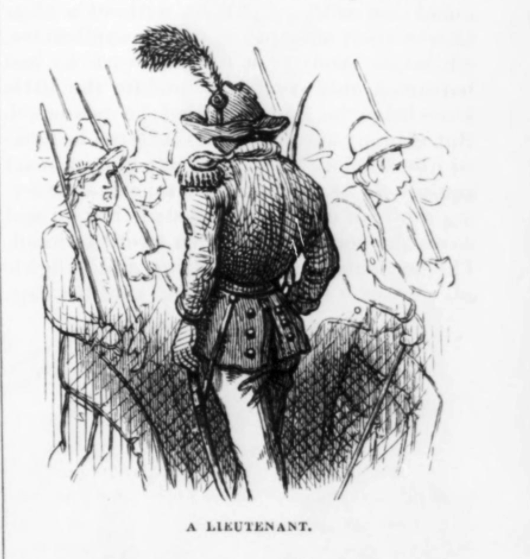
But according to my judgment the greater number of these young volunteers were moved neither by social pressure nor political prejudice. The all-pervading love of adventure and fighting instincts were the most successful recruiting officers of the occasion.
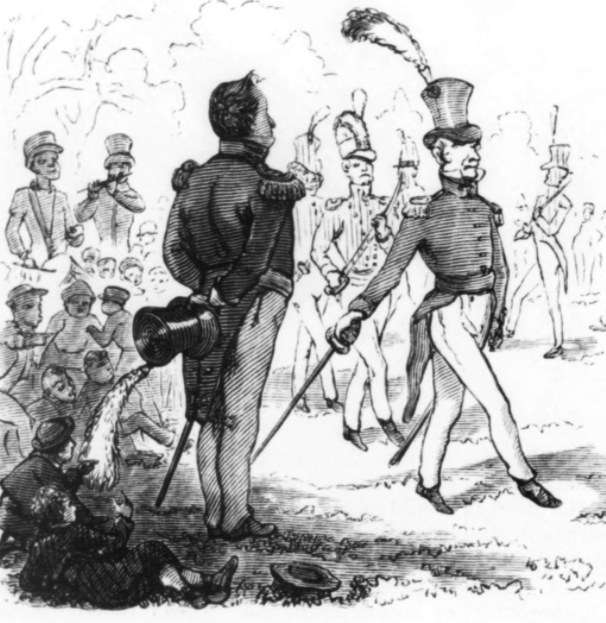
For they had heard of battles, and had longed to follow to the field some warlike lord – so at the first roll of the drum they rushed cheerily from school house and office, counter and work shop, field and fireside, earnest, eager, reckless fellows, marching with a free and vigorous step, sitting their horses like wild Pawnees, most admirable material for a rebellion, just as good soldiers for the Government if perchance the rub-a-dub of the Union drums had first aroused their martial ardor.
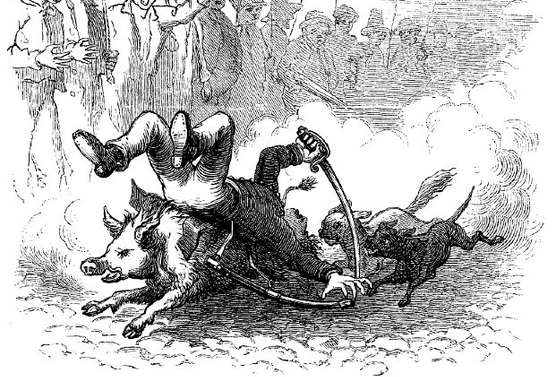
References:
Strother, David H., “Personal Recollections of the Civil War.” Harper’s New Monthly Magazine, New York, NY: Harper and Bros. Volume 33, Issue: 193, June, 1866. pp. 6-7 and 141. Print.
Strother, David H. (June, 1866). “Personal Recollections of the Civil War.” Harpers Magazine. 7 May 2008. Web. 20 Oct. 2010.
Flickr Set:
“David Hunter Strother.” Photo. Library of Congress.
“Effete man.” Drawing by David Hunter Strother.
Strother, David H., “Personal Recollections of the Civil War.” Harper’s New Monthly Magazine. . New York, NY: Harper and Bros. Volume 33, Issue: 193, June, 1866. pp. 6-7. (See REFERENCES)
“Little boy, girl flirting” Drawing by David Hunter Strother.
Strother, David H., “Personal Recollections of the Civil War.” Harper’s New Monthly Magazine. . New York, NY: Harper and Bros. Volume 33, Issue: 193, June, 1866. pp. 6-7. (See REFERENCES)
“Boy wearing havelock.” Drawing by David Hunter Strother.
Strother, David H., “Personal Recollections of the Civil War.” Harper’s New Monthly Magazine. New York, NY: Harper and Bros. Volume 33, Issue: 193, June, 1866. p. 141. (See REFERENCES)
“Woodsmen with rifles.” Drawing Strother, David H., “Virginia Illustrated.” Harper’s New Monthly Magazine. New York, NY: Harper and Bros. Volume 11, Issue: 63, (Aug., 1855). pp. 289-311. (See REFERENCES)
“Glove on sword.” Drawing by David Hunter Strother. From Jsurkamp. (24 December, 2008). “Ring Tournament.” 24 December 2008. Video posted to:
http://www.youtube.com/embed/dMkaZGwfr14?feature=oembed
“Man with big beard, hat.” Drawing by David Hunter Strother.
Jsurkamp. (24 December, 2008). “Ring Tournament.” 24 December 2008. Video posted to: http://www.youtube.com/watch?v=dMkaZGwfr14
“Men sitting” Photo. Jim Surkamp Collection.
“Panorama of mountains.” Photo. Jim Surkamp Collection.

